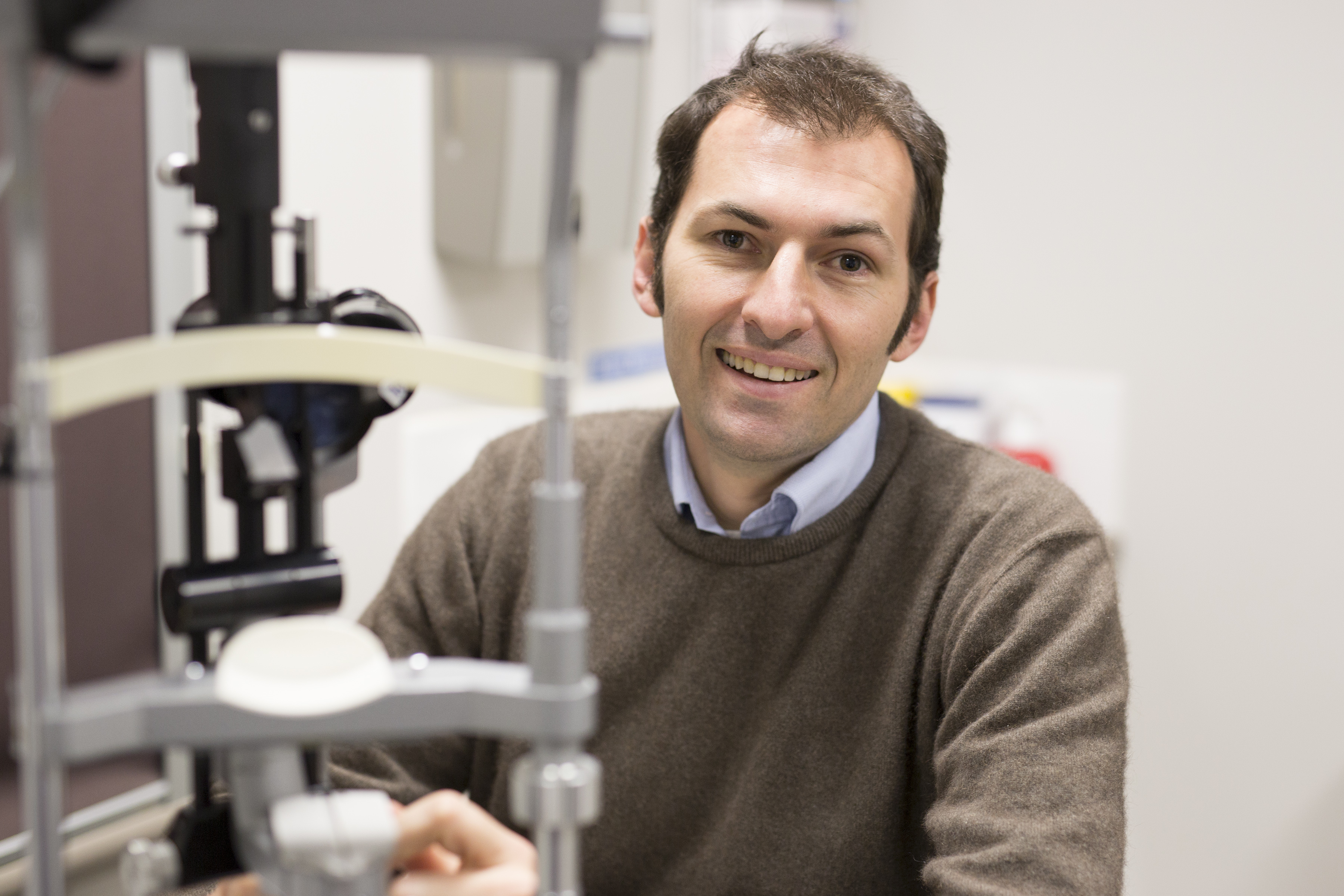National award for university eye disease researcher

National award for university eye disease researcher
A University of Tasmania researcher investigating gene-based
therapies for common eye diseases such as glaucoma and age-related macular
degeneration, as well as less common retinal dystrophies, has received national
recognition by Australia's leading medical research funding organisation.
The National Health and Medical Research Council has announced that Associate Professor Alex Hewitt was the top-ranked Practitioner Fellow for 2015. Associate Professor Hewitt is a Principal Research Fellow at the University's Menzies Institute for Medical Research and School of Medicine, Faculty of Health and a practising ophthalmologist. He graduated in Medicine from the University of Tasmania in 2001 and was recruited back to Hobart in 2014 as part of a concerted program by the University to recruit individuals capable of increasing the global impact of its research.
"Our research aims to develop cures for currently untreatable blinding eye diseases," Associate Professor Hewitt said.
The project recognised by this award aims to better understand the precise molecular mechanisms that lead to inherited blinding diseases. Understanding these mechanisms better will lead to improved screening programs and open avenues for new therapeutic intervention.
"As an ophthalmologist with sub-speciality interest in inherited eye disease, I am very interested in medical advances that will allow us to identify and treat people who are genetically predisposed to blinding eye disease."
Associate Professor Hewitt's work, in collaboration with other researchers based in Tasmania and across Australia, uses cutting edge biotechnology to better understand what is happening at a molecular level in the eyes of patients with these diseases. For example, his collaborative team has established a large repository of patient-specific stem cell lines. Stem cell technology makes it now possible to study retinal cells from patients without actually taking a sample from their eye, which when combined with new gene editing technology, means that it is now possible to define and correct the gene pathways involved in disease.
"My team is motivated by our ability to identify patients in the clinic who are genetically destined to develop blinding disease and we are humbled by the knowledge that the tools to gain a much better insight into their disease and develop novel therapies are now within reach," he said.
Contact: Miranda Harman
Phone: 0427199562
Email: